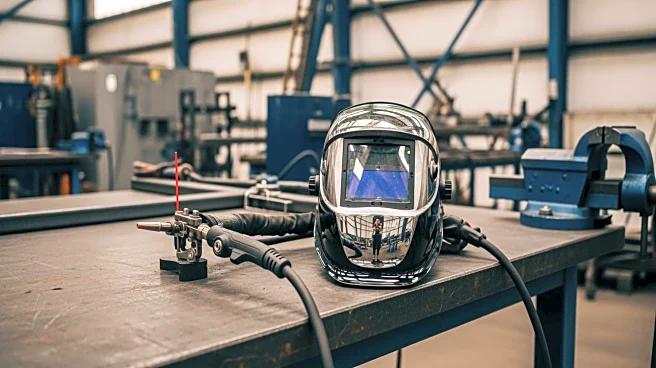What's Happening?
Southeast Community College (SCC) and Klute Inc. have initiated a new apprenticeship program aimed at developing a skilled workforce in the steel fabrication industry. This partnership combines classroom
instruction at SCC with hands-on training at Klute's facilities in York, Nebraska. The program is designed to create a talent pipeline, providing students with both technical skills and professional development. The initiative comes as Klute Inc., a family-owned steel fabricator, experiences rapid growth due to increased demand from electric utilities linked to data center and AI infrastructure development. The apprenticeship will initially focus on welding, starting with a pilot group of four to five students in January, with plans to expand. The program is supported by a $7.9 million award from the U.S. Department of Labor, which will fund the initiative for approximately two-and-a-half more years.
Why It's Important?
This apprenticeship program is significant as it addresses the growing need for skilled workers in the steel fabrication industry, particularly in rural areas like York, Nebraska. By providing structured training and professional development, the program not only equips students with necessary job skills but also offers them career opportunities close to home. This initiative could help retain talent in rural communities, countering the trend of young people moving to urban centers for employment. Additionally, the program supports the local economy by ensuring that businesses like Klute Inc. have access to a skilled workforce, which is crucial for their continued growth and ability to meet rising industry demands.
What's Next?
The apprenticeship program will begin with a small group of students in January, with plans to expand based on initial success and interest. Klute Inc. has adapted its production schedule to accommodate the students' class schedules, offering a flexible shift system. As the program develops, it may expand to include more students and potentially other areas of training beyond welding. The success of this initiative could serve as a model for similar programs in other industries and regions, particularly those facing workforce shortages.









